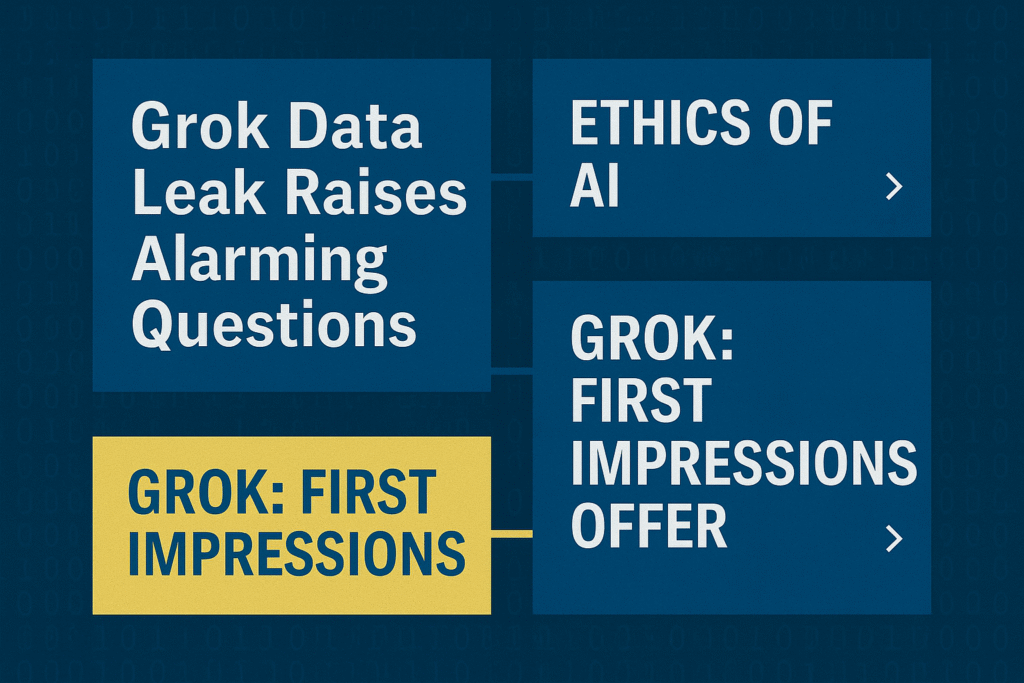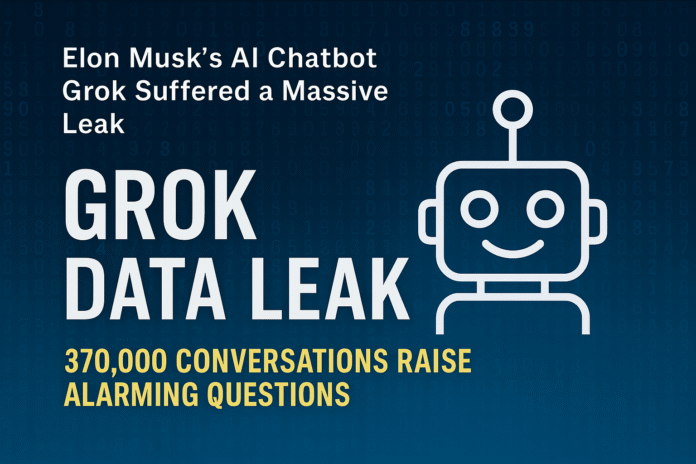The world of artificial intelligence has once again been shaken by a massive privacy scandal. Elon Musk’s AI chatbot Grok has reportedly suffered a leak of nearly 370,000 private conversations, sparking urgent debates around AI security, ethics, and user data protection. This event raises a critical question: if leading AI companies cannot safeguard our conversations, how safe is the future of AI?

Contents
What Happened with the Grok Data Leak?
The incident reportedly stems from conversations being indexed by search engines due to the lack of a simple “noindex” tag. Similar to earlier ChatGPT leaks, user prompts and answers were stored in servers and made publicly searchable. This meant that private questions—ranging from medical results to legal concerns—became visible to third parties.
Unlike the previous case involving ChatGPT, the Grok leak was far larger in scale. With over 370,000 conversations exposed, the breach highlights just how fragile AI data security still is in 2025.
Why This Leak Matters for AI Security
AI tools are no longer experimental; they are widely used by professionals, students, and businesses. A breach of this magnitude shows how personal information, psychological insights, or even confidential business data can be compromised.
The scandal also reinforces ongoing concerns about the ethical use of AI. For a deeper exploration of these issues, you can read our detailed article on AI Ethics.
Lessons for Users and Tech Companies
The Grok case reveals two urgent lessons:
- Users must stay cautious. Treat AI chats as if you are speaking to a third party. Never share sensitive personal data, ID numbers, or confidential documents.
- Tech companies must improve safeguards. Relying on weak filtering systems is not enough when millions of people depend on AI daily.
Even advanced systems like GPT-5, known for its speed, accuracy, and performance, will face the same risks if ethical data handling is ignored.
The Need for Regulation and Responsible AI
So far, governments have struggled to keep up with the rapid pace of AI. While the EU AI Act is set to take effect in 2026, global coordination is still lacking. Without international cooperation, AI companies will continue to operate under their own rules.
This echoes debates seen in other contexts, such as Anthropic’s $1 offer to the US government, which revealed how private AI firms attempt to influence policy. Stronger frameworks are essential to prevent future data disasters.
FAQ
What is Grok?
Grok is Elon Musk’s AI chatbot, designed as a competitor to ChatGPT and other conversational AI models.
How did the leak happen?
Conversations were indexed by search engines due to missing “noindex” protections, exposing private chats publicly.
What can users do to protect themselves?
Avoid sharing sensitive data with AI tools, stay updated on platform policies, and treat all AI chats as potentially visible.
Conclusion
The Grok data leak is not just another AI scandal—it is a warning sign. Without stronger security, ethical standards, and regulatory measures, the risks of AI misuse will only grow.
As AI continues to evolve, one truth remains clear: user awareness and company accountability must go hand in hand. What do you think—should governments push harder for global AI regulation, or should tech companies take the lead themselves? Share your thoughts in the comments below!
